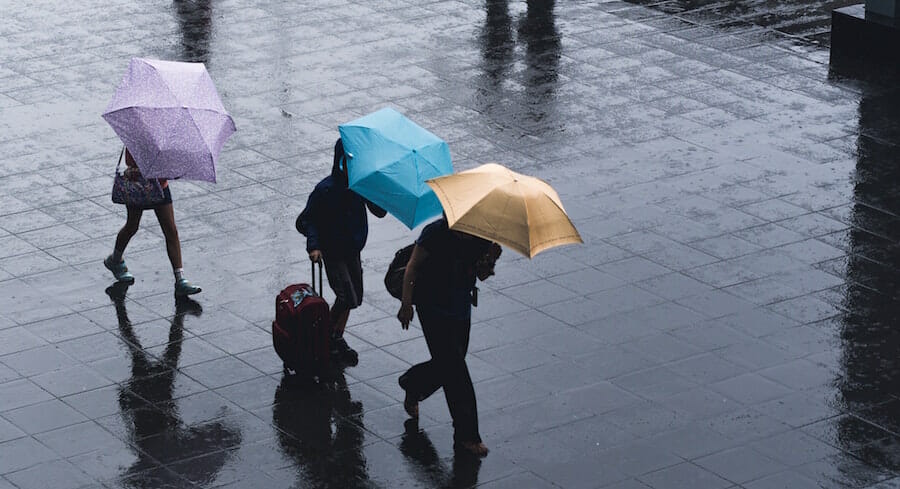
Greater Vancouver was promised a blanketing of snow over the weekend. That didn’t really happen. But even though the region avoided the risk of snow injuries, there is one pain-causing weather patten you can unfortunately count on in the Lower Mainland – rain. Here’s what you can do to help keep precipitation from getting in your way until the sun shines again.
The Rain-Pain (and Injury) Connection and What You Can Do to Prevent and Prepare for It
Understand How Rain Causes Pain (even if indirectly)
There are a number of ways that rain indirectly leads to reported feelings of pain in the populous. These include the following:
- Reduced physical activity and attention to physical health during extended periods of rain.
- Corresponding temperature drop impacts thyroid.
- Increased eating during extended periods of rain can lead to drop in immune function.
- Seasonal affective disorder (SAD) correlated to lower back pain and myofascial face pain.
The above points just touch the surface of the rain-pain connection. We encourage you to read more about the ways rain can increase pain and what you can do to alleviate it.
Umbrella Elbow (and related injuries)
Umbrella elbow? Sort of. If you feel pain when holding that umbrella overhead you may be experiencing injuries that you’re more familiar with – tennis elbow (aka Lateral Epicondylalgia) or golfer’s elbow (which alternatively occurs on the outer side of the elbow).
Even if you’re not already experiencing this pain when shielding yourself from precipitation, extended walks in the rain while holding an umbrella may eventually lead to noticeable symptoms as the underlying issue becomes aggravated. View more about why you may be experiencing pain when holding an umbrella and what you can do about it, right here.
Slippery When Wet
Snow and ice may get the most press when it comes to injuries sustained from seasonal slips and falls, but rain is one to watch as well. When rain saturates pathways that are already covered and leaves and other debris, those with poor balance are significantly at a higher risk of a slip, fall, and subsequent injury. Those with better core strength and balance are far less likely to do the same. You don’t see many skiers, snowboarders, ice-skaters, skateboarders, and surfers losing their balance when tested by slick public surfaces. While you don’t need to “train” for these activities to reduce your risk, you should indeed work with a physiotherapist. They can strengthen your core, evaluate your gait, and can address underlying issues that may be causing dizziness and/or a loss of balance. Learn more about how to improve your balance through physiotherapy.
